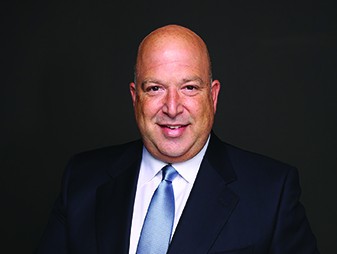Lack of planning undoes a lifetime of achievement
By Howard Kaye
As he teed up on the ninth hole, Frank looked like the picture of a highly successful businessman without a care in the world. In his early 50s, he had adeptly managed to not only survive the Great Recession, but position himself for even greater success. His net worth and low interest rate loans had enabled him to take over two of his less fortunate competitors. The business had reached sales of $5 million a year with a hefty profit margin.
His golfing partners clapped as he hit a 280-foot drive, but then Frank clutched his chest as he felt a massive wave of pain. His friends called 911, but it was too late. His wife and four children were overwhelmed with a tide of grief. Then came the realities of the financial aftermath.
Like many entrepreneurs, Frank was a risk taker. He didn’t believe in having a big cash position in his portfolio and instead rolled profits into his company and real estate investments. Of course, the IRS didn’t fail to notice he had done well and the family was hit with a massive estate tax bill. With most of his assets tied up in his business and real estate, there was a real liquidity problem. To make matters worse, his business suffered without his leadership and the lack of a clear succession plan.
The lack of cash in Frank’s estate and the lack of adequate life insurance led to liquidation of the business at a fire sale price amid tumbling sales. Years of hard work were flushed down the drain due to a lack of planning. Most of Frank’s real estate was sold in a rush at below-market prices to pay the tax bills. Frank’s family was surprised about how little was left as his hard-earned money went to the government.
While Frank had a great legacy as a high-achieving businessman, a loving husband and a doting father, his family and employees were scarred by the aftermath of his death. They wondered how he could have let this happen.
Unfortunately, I hear these types of horror stories all too often. That’s why Howard Kaye Insurance Agency is not about how much you have, but what your heirs get to keep. It’s a lesson I learned from my father, Barry, who wrote the best-selling books, “Die Rich and Tax Free,” “Die Rich 2” and “You Buy, You Die, It Pays!” For many years, my father and I had a half-hour show on WXEL every Sunday night where we addressed key issues in insurance and estate planning. We built a national reputation in the financial media as experts.
There are four key things that proper planning combined with insurance can accomplish:
- Reduce your estate tax costs.
- Create estate liquidity.
- Eliminate expensive and time-consuming probate.
- Leverage and insure the value of your investments.
Frank could have benefited from a holistic approach to estate planning and life insurance. This is especially true in business planning scenarios where plans must be in place to protect the business and the income it can create. In partnership situations, an unexpected death can be devastating. A properly funded key man life insurance policy can prevent the complexities that result when a surviving spouse becomes the unexpected and often ill-prepared partner of the existing business partners. Adequate death benefits can create the liquidity to purchase the surviving spouse’s share of the business so that the remaining partners can continue to build the business without unwanted interference or conflict.
However, properly structured life insurance is not created in a vacuum. It normally requires properly drawn documents such as buy-sell agreements, succession plans and trusts.
Having over 30 years in the life insurance field, I’ve built up a network of trusted advisors such as CPAs and business and estate planning attorneys that I can recommend to clients. I know the best ones in South Florida since I’ve been doing business here since the mid-1990s.
These professionals ensure that the legal documents are drawn up properly and that the I’s are dotted and the T’s are crossed. I also have great relationships with accounting firms who can do business valuations for estate planning purposes.
Given the opportunity, I would have discussed various alternatives with Frank to discuss how to best achieve the liquidity that would be needed after his death. My team would have calculated the proper amount of life insurance to give his family the liquidity it needed to pay the estate tax and all estate settlement costs, including any outstanding business loans or lines of credit. Frank did have a policy, but it was far too small to deal with his family’s needs.
Life insurance in estate planning is all about leaving your heirs the absolute most money possible, and giving your family the opportunity to properly decide how to handle business assets and other important issues without the pressure of a massive pending tax bill.
To put it simply: Let the life insurance company pay the estate taxes for you. We both know they can afford it.
Howard Kaye can be reached at 561.417.5883 or hkaye@howardkayeinsurance.com.














